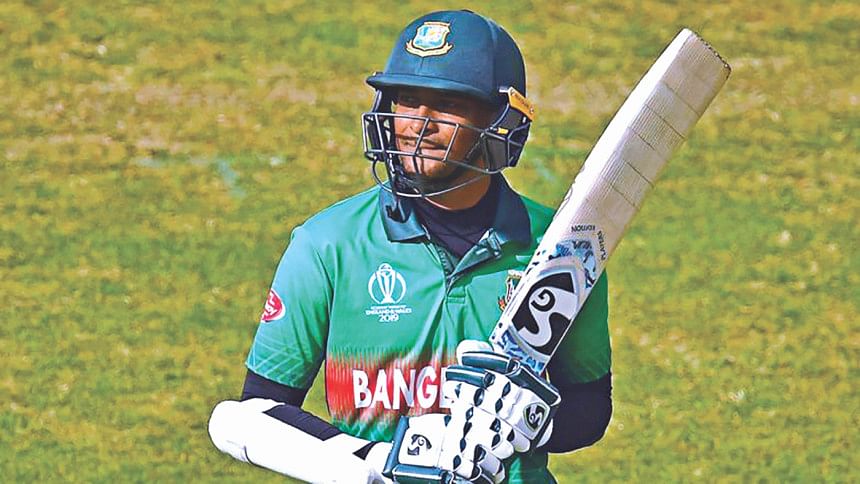The legality of Shakib’s ban

The International Cricket Council (ICC) on October 29, 2019, banned Shakib Al Hasan from all levels of cricket for two years. In its seven-page decision published on its website, the ICC revealed all the information regarding the facts of the case, the investigation procedure, the charges against Shakib, and the sanction imposed on him.
The charges against Shakib are that he committed three separate breaches of Article 2.4.4 of the ICC Anti-Corruption Code, which obliges cricketers to report full details of any approaches or invitations to engage in corrupt conduct to the Anti-Corruption Unit (ACU) of ICC. During the investigation, Shakib admitted that he was approached thrice by an Indian bookie, Mr. Deepak Aggarwal via WhatsApp messages. Two of these incidents took place on January 19 and 23, 2018, while representing Bangladesh in the tri-nation series against Sri Lanka and Zimbabwe, whereas the last incident took place on April 26, 2018, while representing Sunrisers Hyderabad during the Indian Premier League (IPL).
The ICC also held that failure to provide them with such information despite being fully aware of his duties under the Code and the procedures to be followed were the aggravating factors, while his prompt and voluntary admission of the offence, his cooperation during the entire investigation and his prior disciplinary record were the mitigating factors. Thereafter, as per Article 6.2, which prescribes a minimum ban of six months and a maximum ban of five years for breach of Article 2.4.4, the ICC punished Shakib with a ban from all forms of cricketing for two years, of which 12 months is suspended. It also reiterated the fact that neither party can appeal against this agreed sanction to the Court of Arbitration for Sport (CAS) under Article 7.2.
Critics have argued that given this Code came into effect on February 9, 2018, as per its Article 11.3, its substantive provisions will not be applied retrospectively to matters pending before the effective date. Therefore, the sanction cannot be imposed on Shakib. However, we need to delve deeper into this provision to understand what it really says. Article 11.3 says that for matters that had taken place before the Code came into effect but were brought to the Council after its effective date, firstly, the previous (2014) Code would deal with the substantive provisions, subject to any applicability of the principle of lex mitior and secondly, the current Code would deal with the procedures to be followed.
The Latin term lex mitior states that where there has been a change in the sanction provided under a criminal legislation, a person found guilty of an offence is to benefit from the repealing legislation, which either decriminalises the offence or provides lighter punishment. But, a plain reading of Articles 2.4.4 and 6.2 of the 2014 Code makes it clear that this act of suppressing information and not reporting to the ACSU (now ACU) is an offence and the quantum of punishment for such offence is exactly similar to that of the current Code. As such, the legality/maintainability of the sanction imposed cannot be questioned.
Given the extensive awareness measures taken by ICC to curb corruption in cricket, it was Shakib’s responsibility to report the incidents and cooperate with ACU to bring Mr. Aggarwal to book. Nevertheless, one can argue whether the minimum punishment of six months would have sufficed in this regard. But there are previous instances of cricketers being banned for longer terms due to suppressing such information. Hence, taking into account Shakib’s experience and stature, the sanction may have been imposed to reiterate ICC’s zero tolerance regarding corrupt practices.
It needs to be mentioned that Shakib reported an earlier incident of such an approach to the concerned authorities back in 2008/09. Moreover, veteran cricketer Tamim Iqbal was also approached by Mr. Aggarwal in January 2018, which he immediately reported to ACU and BCB’s anti-corruption unit. However, neither did any criminal proceeding commence against Mr. Aggarwal, and nor did ICC take any action against him. Therefore, the ICC too has to take effective measures against such marked offenders to send the message to the players that reporting such incidents will lead to strict actions being taken against the perpetrators.
The writer is Junior Legal Analyst, i-Probono (Bangladesh).

 For all latest news, follow The Daily Star's Google News channel.
For all latest news, follow The Daily Star's Google News channel. 



Comments